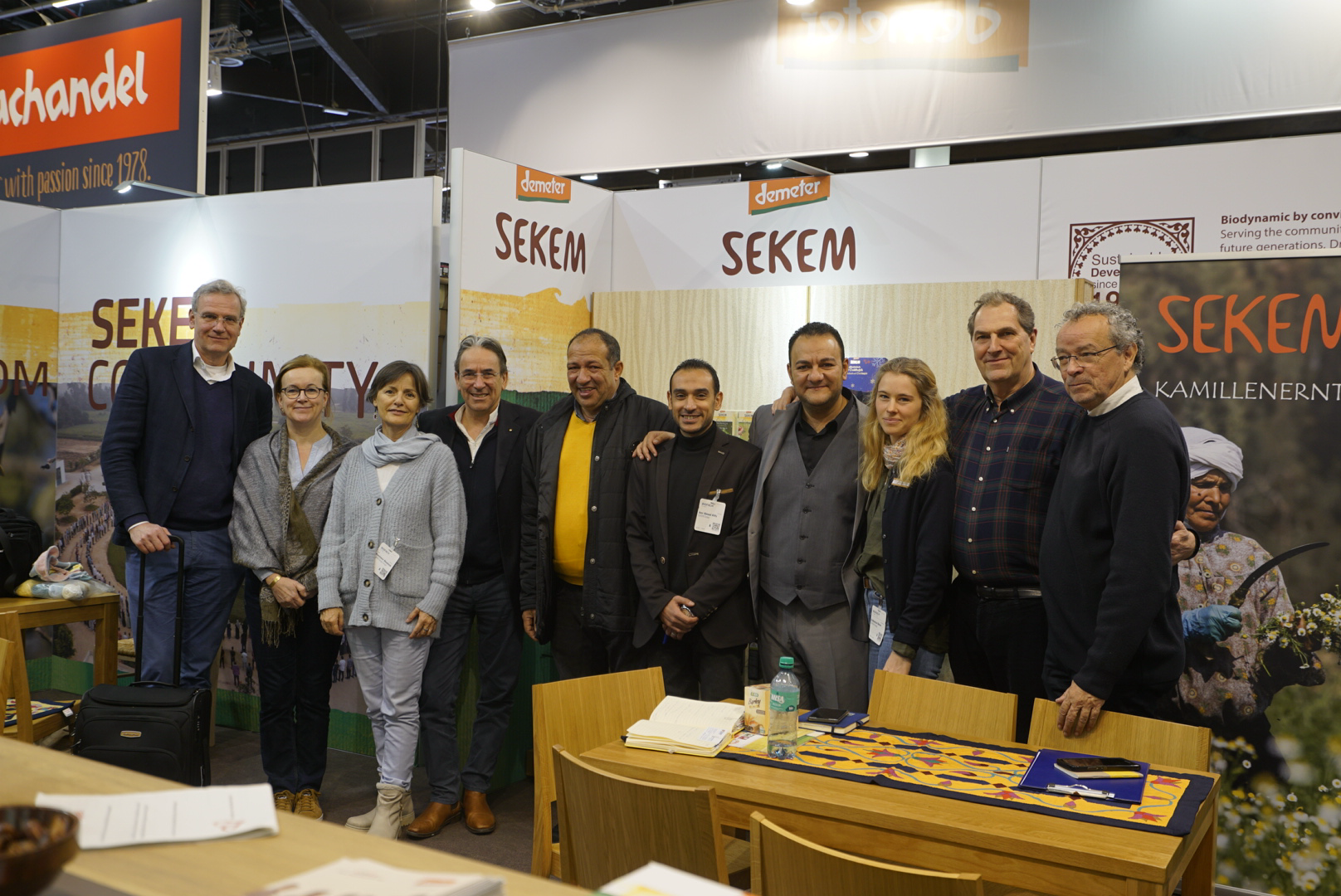This year, we are excited to be participating in BIOFACH 2025, the world’s leading trade fair for organic food, taking place February 11-14 in Nuremberg, Germany. At the event, our team is showcasing our diverse range of high-quality organic products while promoting our “True Cost Accounting” philosophy, demonstrating the economic viability of organic agriculture compared to conventional methods.
At our booth, the team is featuring a variety of organic products, including herbs alongside premium raw ingredients from one of our companies, Lotus. We are thrilled to be promoting regenerative agriculture practices, including organic and biodynamic methods. Through engaging conversations, our team aims to illustrate how organic agriculture can effectively address pressing global challenges such as climate change, food security, and water scarcity.
Our team is also highlighting SEKEM’s True Cost Accounting philosophy, asserting that incorporating health factors and environmental risks reveals organic products to be more cost-effective than conventionally farmed alternatives.
What does it mean for us?
Helmy Abouleish, CEO of SEKEM Group, commenting on our participation: “The UN FAO estimates that the hidden costs within our current agrifood systems amount to $12.7 trillion. While organic products are often perceived as more expensive, this figure underscores the significant health and environmental externalities that are frequently omitted from conventional pricing models. These factors are, in reality, indispensable and cannot be substituted. At SEKEM, we are committed to True Cost Accounting, exemplified by our Economy of Love (EoL) model. We believe that by empowering farmers in their transition to organic and biodynamic agriculture and rewarding their environmental efforts through carbon credits, we’re building sustainable and healthy food systems. The EoL standard offers a viable solution to global challenges such as climate change, food insecurity or social injustice by making organic food more affordable, ensuring fair compensation, and supporting all stakeholders through a transparent supply chain.”

